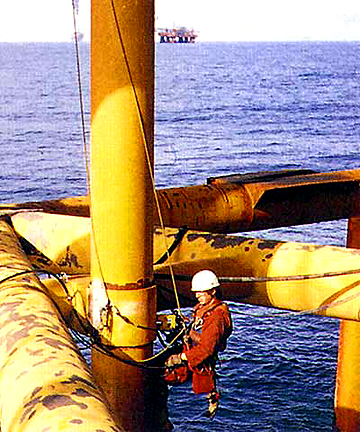
The government of China has taken aim at natural gas, coal and crucial components for solar panels and wind turbines in its escalating trade war with the U.S government. However, one of America’s largest and fastest-growing exports has so far stayed out of Beijing’s cross-hairs, that is crude oil.
Even as China hiked duties on liquefied natural gas, or LNG, from 10% to as high as 25%, this week, the country’s leaders have not signaled that they’re interested in taking similar action on crude oil.
China threatened to slap tariffs on crude, alongside natural gas and other U.S. energy exports as recently as last year. Yet nothing thus far – chiefly because implementing tariffs on crude would likely have little more than a symbolic impact while imposing at least modest costs on Chinese importers that have an enormous demand for imported oil.

According to Jane Nakano, senior fellow in the energy and national security program at the Center for International and Strategic Studies, a D.C.-based think tank, “China’s decision to date to not impose tariffs on U.S. crude oil” in part reflects “the importance of U.S. supply to help China meet its crude oil demand.” However, while China is one of the largest destinations for U.S. crude, the vast majority of China’s oil imports come from elsewhere.
The country imports most of its oil from Russia, Saudi Arabia, Angola and a handful of other suppliers, and it is looking to maintain maximum flexibility in a fluctuating market amid a crackdown on Iranian exports and political turmoil in Venezuela that has vastly curtailed supply.

As stated by Alan Gelder, vice president of refining, chemicals and oil markets at Wood Mackenzie, “China does have huge demand for oil and it’s growing quite strongly, but much of what China requires for oil is medium and heavy grade, whereas the U.S. is predominantly light, so the U.S. crude that’s being exported isn’t the ideal crude for Chinese refiners.”
The U.S. last year ranked as only the 10th largest source of oil for Beijing. Part of the reason for that is that American oil is a light, sweet variety, while most of the countries from which China imports produce the heavy, sour crude that the country’s refineries were built to handle.

Instituting a tariff on U.S. crude would not only potentially limit its options for acquisition but also undercut Beijing’s argument that it is in such dire need of crude that it should be granted a waiver to continue importing oil from Iran, a waiver that Chinese companies are seeking to obtain to avoid U.S. sanctions.
Although experts agree that Chinese sanctions of U.S. crude oil are not likely, they also emphasize that they’re not impossible: One reason that China has begun ramping up imports of crude oil since the start of the trade war, analysts believe, is to increase its domestic stockpile of crude oil.





